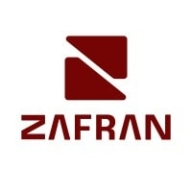


Lacework FortiCNAPP and SentinelOne Singularity Identity compete in the security management domain, with each excelling in different areas. Based on feature sets, Lacework FortiCNAPP seems to have an upper hand due to its ease of use and comprehensive cloud integration, while SentinelOne offers strong identity protection and behavior-based threat detection.
Features: Lacework FortiCNAPP is valued for its machine learning anomaly detection, comprehensive compliance reporting, and seamless integration with cloud services. Its agent-based vulnerability management and alert system enhance security management efficiency. SentinelOne Singularity Identity is known for its dynamic incident response, unified security event view, and behavior-based threat detection, which offer robust protection against identity exploitation and threats.
Room for Improvement: Lacework FortiCNAPP needs improvements in data governance, third-party tool integration, and alerts configuration while lacking some remedial features and government certifications like FedRAMP. SentinelOne Singularity Identity could enhance its endpoint management, web filtering, and server performance impacts. Additionally, improvements in customer support and more intuitive reporting tools are needed.
Ease of Deployment and Customer Service: Lacework FortiCNAPP receives accolades for its responsive customer service, frequent communication, and effective integration assistance. It offers proactive support through platforms such as Slack. SentinelOne Singularity Identity delivers reliable customer service, although some users cite variable response speeds and unclear documentation but benefits from effective cloud deployment.
Pricing and ROI: Lacework FortiCNAPP is perceived as slightly expensive but demonstrates clear ROI by automating monitoring and reducing manual workload, providing excellent value for large cloud environments. SentinelOne Singularity Identity is seen as cost-effective, offering substantial features for its price, though user concerns about price increases and licensing transparency are noted. Lacework emphasizes reductions in personnel costs, while SentinelOne is favored for comprehensive security at a competitive price.
| Product | Market Share (%) |
|---|---|
| SentinelOne Singularity Identity | 0.7% |
| Zafran Security | 1.0% |
| Lacework FortiCNAPP | 1.3% |
| Other | 97.0% |



| Company Size | Count |
|---|---|
| Small Business | 4 |
| Midsize Enterprise | 4 |
| Large Enterprise | 3 |
| Company Size | Count |
|---|---|
| Small Business | 4 |
| Midsize Enterprise | 5 |
| Large Enterprise | 13 |
Zafran Security integrates with existing security tools to identify and mitigate vulnerabilities effectively, proving that most critical vulnerabilities are not exploitable, optimizing threat management.
Zafran Security introduces an innovative operating model for managing security threats and vulnerabilities. By leveraging the threat exposure management platform, it pinpoints and prioritizes exploitable vulnerabilities, reducing risk through immediate remediation. This platform enhances your hybrid cloud security by normalizing vulnerability signals and integrating specific IT context data, such as CVE runtime presence and internet asset reachability, into its analysis. No longer reliant on patch windows, Zafran Security allows you to manage risks actively.
What are the key features of Zafran Security?
What benefits can users expect from Zafran Security?
In industries where security is paramount, such as finance and healthcare, Zafran Security provides invaluable protection by ensuring that only exploitable vulnerabilities are addressed. It allows entities to maintain robust security measures while allocating resources efficiently, fitting seamlessly into existing security strategies.
Lacework FortiCNAPP provides robust cloud security, combining vulnerability management and multi-cloud insight with user-friendly controls, machine learning detection, and compliance support.
Lacework FortiCNAPP specializes in cloud security by merging machine learning anomaly detection with agent-based vulnerability management to offer detailed alerts and compliance reports. Its comprehensive approach allows continuous monitoring across AWS and Kubernetes, providing insights from an attacker's perspective. The platform offers automation and seamless Slack integration, facilitating collaborative and efficient cloud security management. Users value its ability to handle multi-cloud environments and scan IAC scripts, configurations, and compute nodes across AWS and GCP.
What are the key features?Organizations across sectors leverage Lacework FortiCNAPP for cloud security, focusing on compliance, security posture, and vulnerability management. It is widely used for monitoring AWS and Kubernetes environments, scanning IAC scripts, configurations, and securing compute nodes. It supports multi-cloud security posture management and log ingestion, enabling companies to maintain strong cloud infrastructures without dedicated security layers.
Singularity Identity, a component of the Singularity platform, provides threat detection & response (ITDR) capabilities to defend Active Directory and domain-joined endpoints in real-time from adversaries aiming to gain persistent, elevated privilege and move covertly. Singularity Identity provides actionable, high-fidelity insight as attacks emerge from managed and unmanaged devices. It detects identity misuse and reconnaissance activity happening within endpoint processes targeting critical domain servers, service accounts, local credentials, local data, network data, and cloud data. On-agent cloaking and deception techniques slow the adversary down while providing situational awareness and halting adversarial attempts at lateral movement. Singularity Identity helps you detect and respond to identity-based attacks, providing early warning while misdirecting them away from production assets.
Singularity Identity’s primary use case is to protect credential data and disrupt identity-based attacks. The most valuable function of Singularity Identity is its ability to misdirect attackers by providing deceptive data to identity-based recon attacks. Additionally, it can hide and deny access to locally stored credentials or identity data on Active Directory domain controllers.
Singularity Identity also provides rapid detection and respond to identity attacks, capturing attack activity and feeding it directly to the Singularity platform’s Security DataLake for enterprise-wide analysis and response.
By implementing Singularity Identity, organizations benefit from enhanced security, reduced credential-related risks, and improved user productivity. It detects and responds to identity-based attacks, ensuring only authorized individuals can access critical identity data. With its cloaking capabilities to hide identity stored locally on endpoints or in the identity infrastructure and it’s ability to provide decoy results to identity-based attacks, organizations can effectively secure their sensitive or privileged identities, resulting in improved overall identity security.
We monitor all Vulnerability Management reviews to prevent fraudulent reviews and keep review quality high. We do not post reviews by company employees or direct competitors. We validate each review for authenticity via cross-reference with LinkedIn, and personal follow-up with the reviewer when necessary.